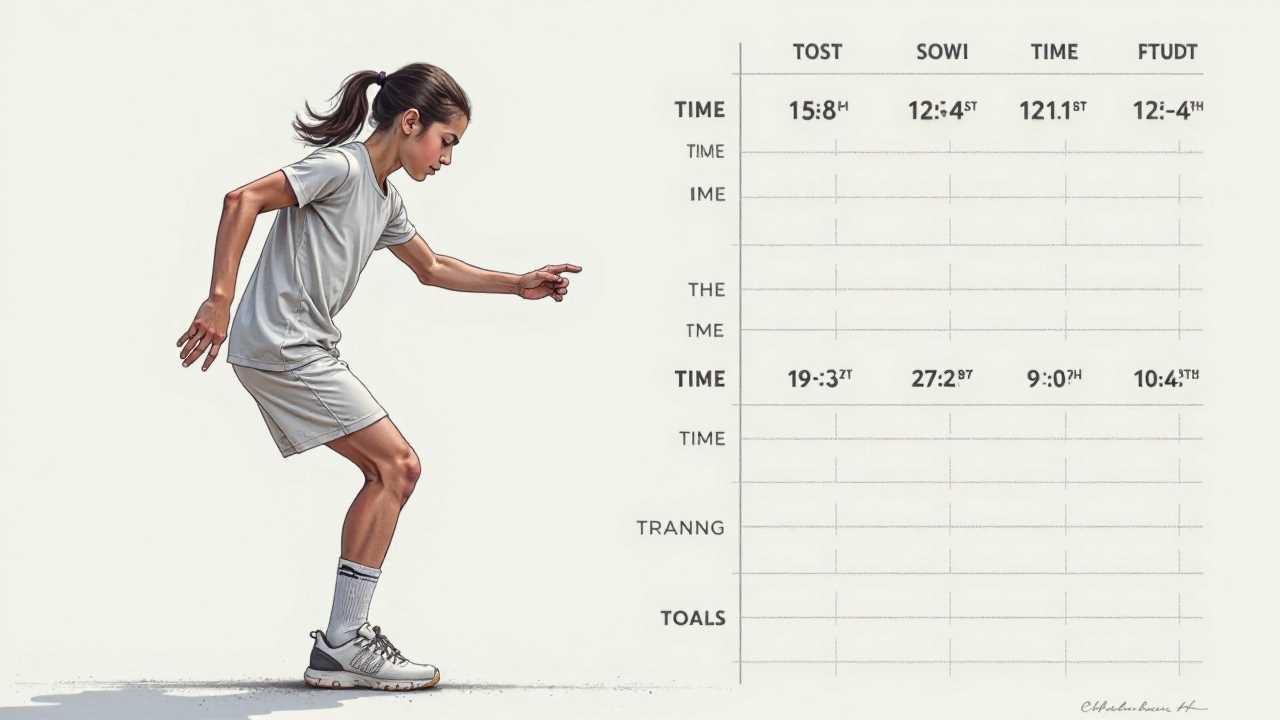
Understanding Time Management for Student-Athletes
Time management for student-athletes is not merely a skill; it is a critical component of achieving success both academically and athletically. Balancing the demands of rigorous training schedules, competitions, and academic responsibilities requires a strategic approach. By mastering time management, student-athletes can enhance their productivity, maintain their commitment to both sports and studies, and ultimately achieve a harmonious balance in their lives.
The Importance of Prioritization
Prioritization is the cornerstone of effective time management. Student-athletes often find themselves juggling multiple responsibilities, making it essential to identify what tasks are most important. We recommend creating a prioritization matrix that categorizes tasks based on urgency and importance. This method allows student-athletes to focus on high-priority tasks first, ensuring that critical assignments and training sessions are completed without last-minute stress.
To implement prioritization effectively, consider the following steps:
1. List All Tasks: Write down everything that needs to be accomplished, from homework assignments to training schedules.
2. Categorize Tasks: Use a simple system to categorize tasks into urgent, important, and less critical.
3. Set Deadlines: Assign deadlines to each task to create a sense of urgency and accountability.
4. Review Regularly: Regularly revisit your list to adjust priorities as needed.
By maintaining a clear focus on priorities, student-athletes can manage their time more efficiently and reduce the likelihood of feeling overwhelmed.
Effective Scheduling Techniques
Scheduling is another vital aspect of time management for student-athletes. A well-structured schedule not only helps in organizing daily activities but also ensures that there is ample time allocated for both training and study. Here are some effective scheduling techniques:
1. Use a Planner: Whether digital or paper, a planner can help track assignments, training sessions, and competitions.
2. Block Time: Allocate specific blocks of time for studying, training, and relaxation. This method helps in creating a routine that balances all aspects of life.
3. Include Downtime: It’s essential to schedule breaks and downtime to recharge. Overworking can lead to burnout, which negatively impacts both athletic performance and academic success.
4. Stay Flexible: While it’s important to stick to a schedule, being adaptable is equally important. Unexpected events may arise, and being able to adjust your schedule accordingly is crucial.
By implementing these scheduling techniques, student-athletes can ensure that they are making the most of their time while maintaining a healthy balance between their commitments.
Achieving Balance in Life
Achieving balance is a common challenge for student-athletes. The pressure to excel in both academics and sports can lead to stress and anxiety. To foster a sense of balance, consider the following strategies:
1. Set Realistic Goals: Establish achievable goals for both academic and athletic pursuits. This helps in maintaining motivation and reducing feelings of inadequacy.
2. Communicate: Open lines of communication with coaches, professors, and peers can help manage expectations and responsibilities. Sharing your schedule and commitments can foster understanding and support.
3. Practice Self-Care: Prioritize physical and mental well-being. Engage in activities that promote relaxation and stress relief, such as yoga, meditation, or simply spending time with friends.
4. Reflect Regularly: Take time to reflect on your commitments and how they align with your goals. Adjusting your focus as needed can help maintain balance.
By actively working towards achieving balance, student-athletes can enhance their overall well-being and performance.
Boosting Productivity Through Focus
Focus is a key element in enhancing productivity. With numerous distractions in today’s world, maintaining concentration can be challenging. Here are some techniques to improve focus:
1. Create a Distraction-Free Environment: Designate a specific area for studying that is free from distractions. This could be a quiet room, library, or any space conducive to concentration.
2. Use Time Management Techniques: Techniques like the Pomodoro Technique, which involves working in focused bursts followed by short breaks, can enhance productivity.
3. Limit Multitasking: Focus on one task at a time. Multitasking can lead to decreased efficiency and increased errors.
4. Set Clear Objectives: Before starting a study session or training, outline specific objectives. This clarity can help maintain focus and direction.
By honing in on focus, student-athletes can significantly improve their productivity, allowing them to accomplish more in less time.
Commitment to Continuous Improvement
Commitment is the driving force behind successful time management for student-athletes. It involves a dedication to personal growth and a willingness to adapt and refine strategies. Here are ways to foster commitment:
1. Set Long-Term Goals: Establish long-term academic and athletic goals that inspire motivation and commitment.
2. Track Progress: Regularly assess your progress towards goals. This can provide motivation and highlight areas for improvement.
3. Seek Support: Surround yourself with supportive peers, mentors, and coaches who encourage your commitment to both academics and athletics.
4. Stay Positive: Maintain a positive mindset, even when faced with challenges. A positive attitude can foster resilience and commitment.
By cultivating a strong sense of commitment, student-athletes can navigate the complexities of their dual roles more effectively.
Conclusion
Mastering time management is essential for student-athletes striving for success in both academics and sports. By focusing on prioritization, effective scheduling, achieving balance, enhancing productivity through focus, and fostering commitment, student-athletes can create a blueprint for success. Implementing these strategies will not only lead to improved performance but also contribute to a fulfilling and well-rounded college experience.
 Careers in EducationElementary EducationHigh School EducationEducational TechnologyTeaching StrategiesSpecial EducationPrivacy PolicyTerms And Conditions
Careers in EducationElementary EducationHigh School EducationEducational TechnologyTeaching StrategiesSpecial EducationPrivacy PolicyTerms And Conditions
